On August 20, the International Chinese Education Academic Seminar on Building a Community with a Shared Future for Mankind was held at the permanent venue of the China-ASEAN Education Cooperation Week in Guiyang. The opening ceremony was hosted by Wang Jinrong, Vice President of Guizhou University. The attendees included Hu Zhiping, Deputy Director of the Center for Language Education and Cooperation under Ministry of Education, Zhao Lingshan, Vice President and Secretary-General of the Chinese International Education Foundation, Wang Hui, Chief Inspector of the Guizhou Provincial Department of Education, Yang Wei, Party Secretary of Guizhou University, Xiao Yuanping, Party Secretary of Guizhou Normal University, and Raúl Sánchez Prieto, Vice President of the University of Salamanca in Spain.

Hu Zhiping provided a comprehensive overview of the current state of international Chinese education. He pointed out that international Chinese education acted as a bridge, facilitating language exchange, mutual learning among civilizations and people-to-people connections between China and other countries. It made significant contributions to building a community with a shared future for mankind. He stressed that the Center for Language Education and Cooperation will enhance collaboration with ASEAN countries in areas such as aligning standards, supporting local development, strengthening “Chinese+” programs, advancing digital education cooperation, and expanding the influence of branded projects. The Center aims to contribute to the high-quality development of international Chinese education and the building of a global community.
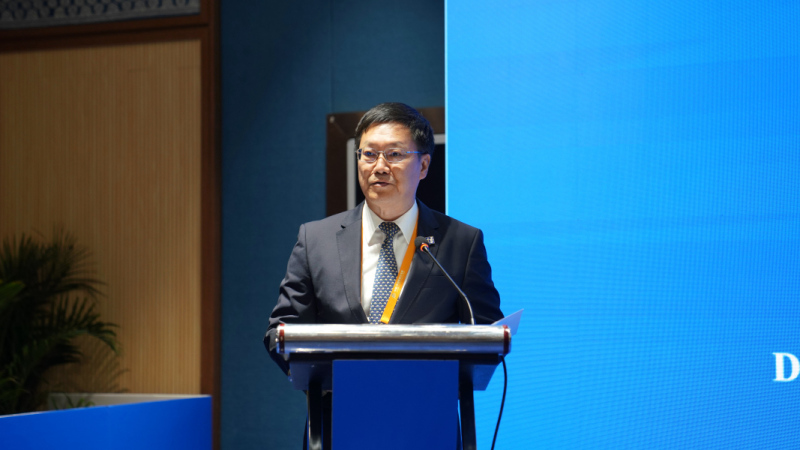
Zhao Lingshan shared his insights from the perspective of Confucius Institutes. He stressed that international Chinese education is the starting point of China’s open education and has responded to the international situation at the time. Today’s Confucius Institutes and international Chinese education face both opportunities and challenges in the international political environment, with opportunities outweighing challenges. By focusing on language learning and fostering cultural exchange, Confucius Institutes represent a seamless blend of language as both a national and global public good. They play a crucial role in facilitating the exchange and mutual understanding between different civilizations and in bridging cultural gaps. Promoting mutual understanding is a daily effort for Confucius Institutes, which aim to build a community with a shared future and advocate for universal values such as peace, development, fairness, justice, democracy and freedom.
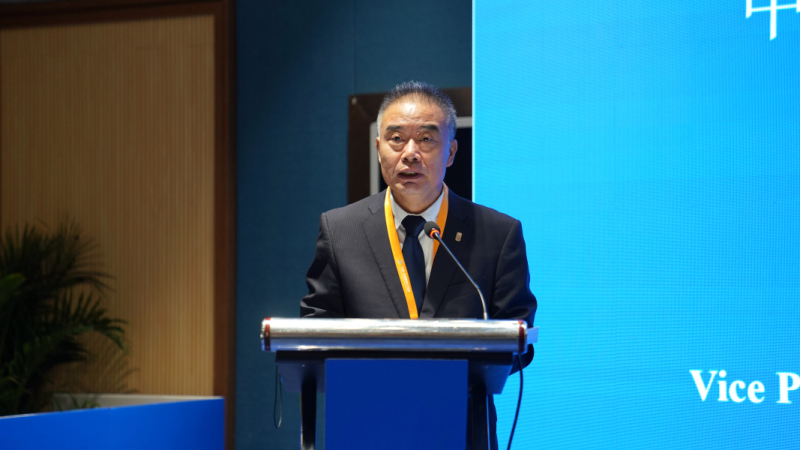
Wang Hui outlined the development of international education in Guizhou Province. She emphasized that the Guizhou Provincial Department of Education will use the platform of China-ASEAN Education Cooperation Week to strengthen exchanges and cooperation with countries worldwide. The department will continue to support existing Confucius Institutes, coordinate international Chinese education resources, and focus on improving areas such as textbook development, digital education, and quality monitoring. The goal is to actively engage in international Chinese education and Confucius Institute networks, providing comprehensive support to Confucius Institutes in Guizhou Province.
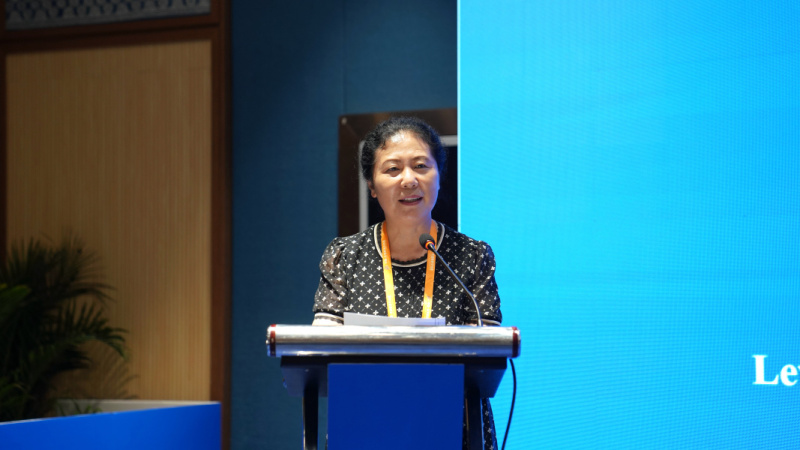
Yang Wei extended greetings to the leaders and guests and provided an overview of international Chinese education at Guizhou University. She highlighted that Guizhou University will continue to enhance its international exchanges and cooperation, actively engage in global Chinese education projects and high-level events, and create more opportunities for collaboration. The University aims to refine its approach to international Chinese education by updating course content and developing materials tailored to various cultural contexts. The focus will be on addressing emerging trends, needs, and features of international Chinese education in the new era, aligning with global professional standards and technological advancements.
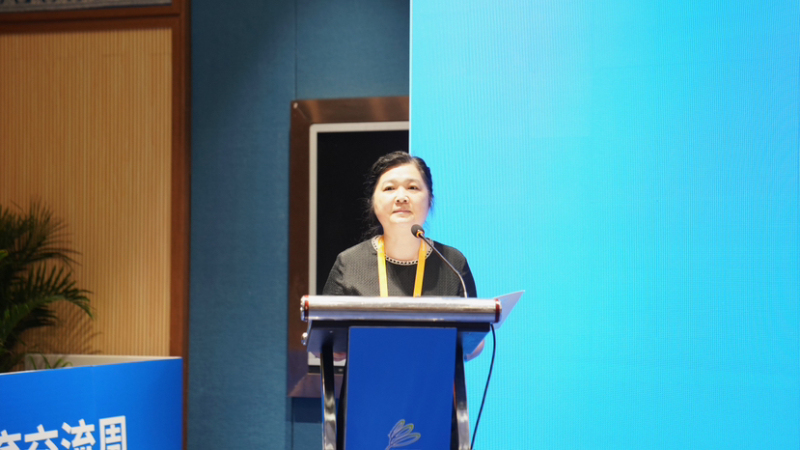
Raúl Sánchez Prieto highlighted that the China-ASEAN Education Cooperation Week offers a valuable platform for advancing international education cooperation. The University of Salamanca hopes to collaborate with more universities in Asia, particularly in China. He also announced that the University of Salamanca has received approval from the Chinese International Education Foundation to establish a Confucius Institute. Dr. Xu Jinjing from the University of Salamanca will serve as the Spanish Director. Both parties will work together to achieve the goal of establishing the Confucius Institute at the University of Salamanca.
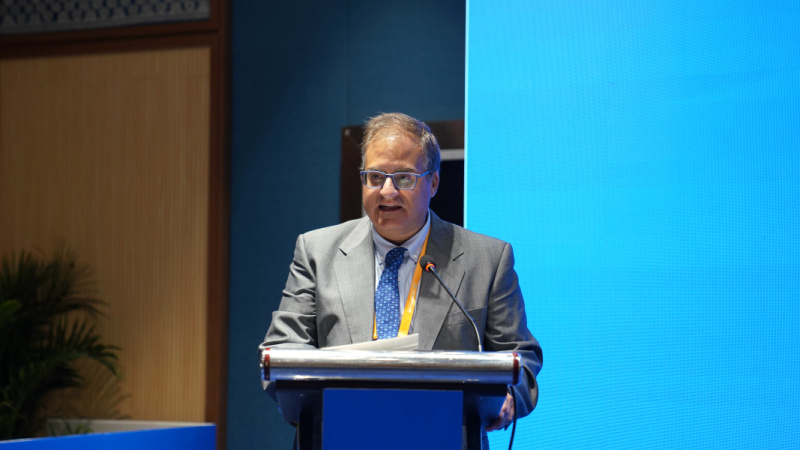
During the seminar, two cooperation agreements were signed. One is to establish Confucius Institutes among the Chinese International Education Foundation, Guizhou University and the University of Salamanca. The other is to establish Confucius Institutes among the Chinese International Education Foundation, Guizhou Normal University and the Kiribati branch of the University of the South Pacific. Keynote speeches were delivered by Jiang Liping, Deputy Dean of the Institute of Chinese International Education at Beijing Language and Culture University, Aelona Nevrolina Leonidovna, Director of the Academic Development Department at Ural Federal University in Russia, and Zhang Yongtao, Professor from Yale University. Additional addresses were given by Yu Miao, Dean of the Chinese Department at Beijing Second Foreign Language Institute, Xu Jinjing, Associate Professor from the University of Salamanca, Lei Li, Deputy Dean of the Overseas Education College from Sichuan University, and Seng Mean, Deputy Director of the Training and Research Center for Public Policy at the Royal Academy of Cambodia.
Editor: Zhang Chan
Chief Editor: Li Xufeng
Senior Editor: Ding Long
Translator: Wang Xiaomin